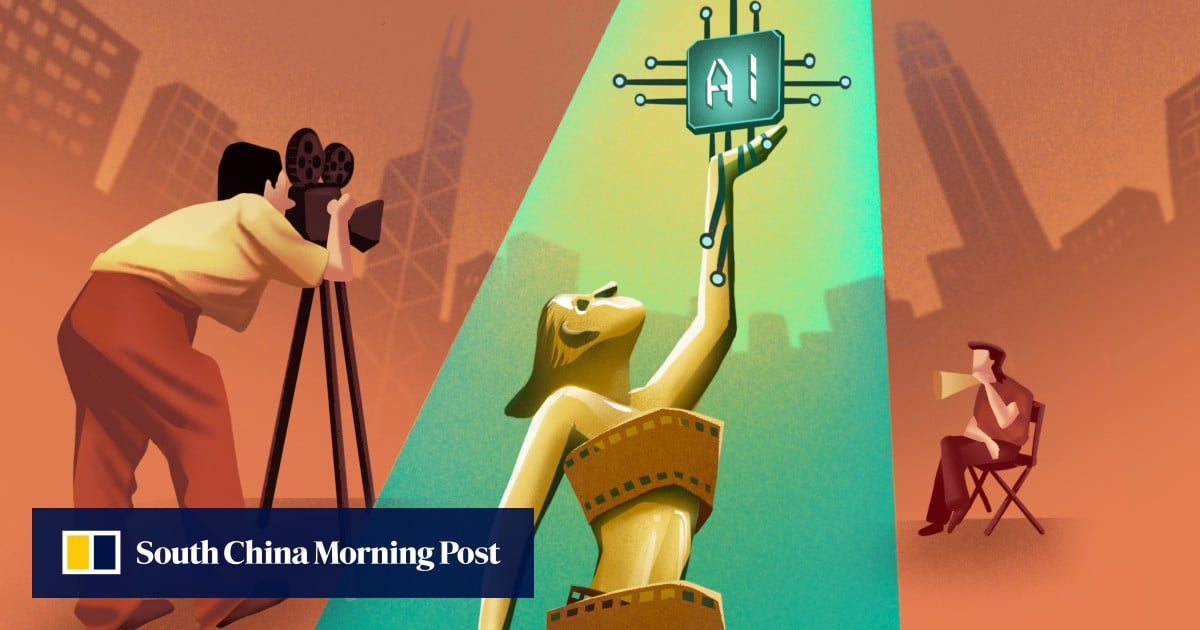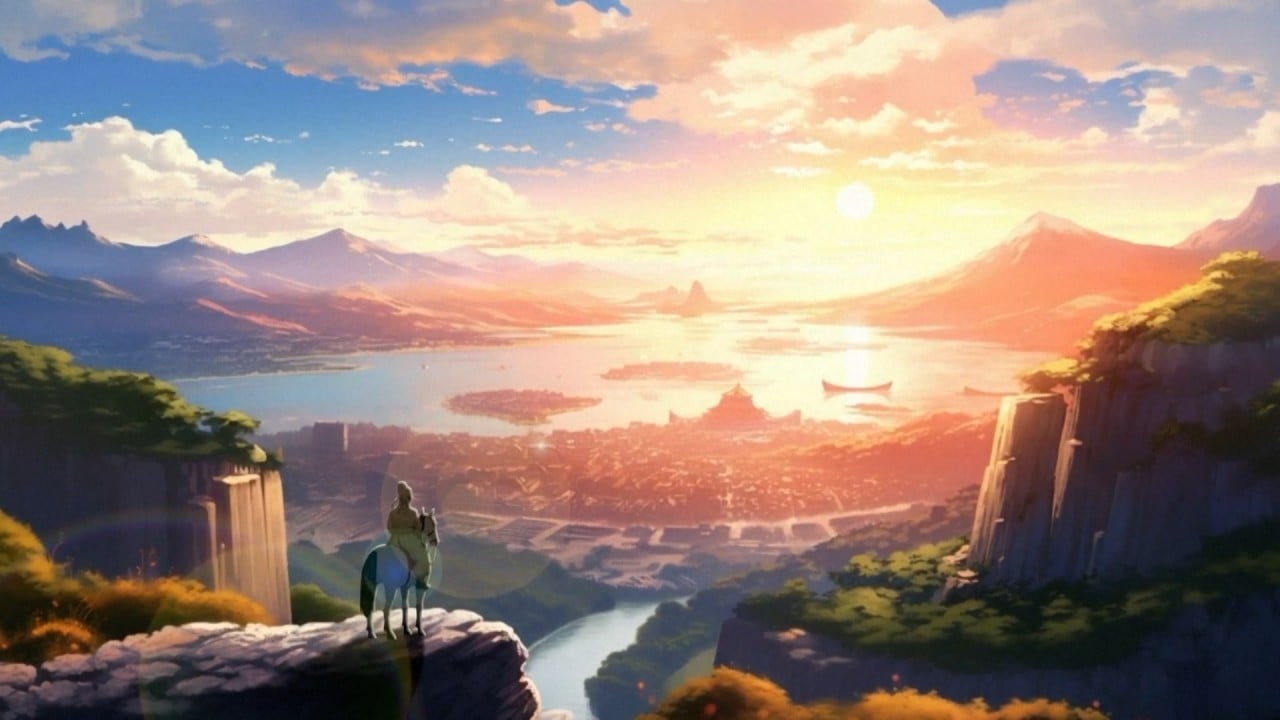By creating realistic virtual locations, for example, there will be no need to fly actors and crew to different places, and audiences will not be able to tell the difference.
There are other ways the new technology can work at various stages of making a film, right through to the tedious stage of post-production editing and making technical fixes.
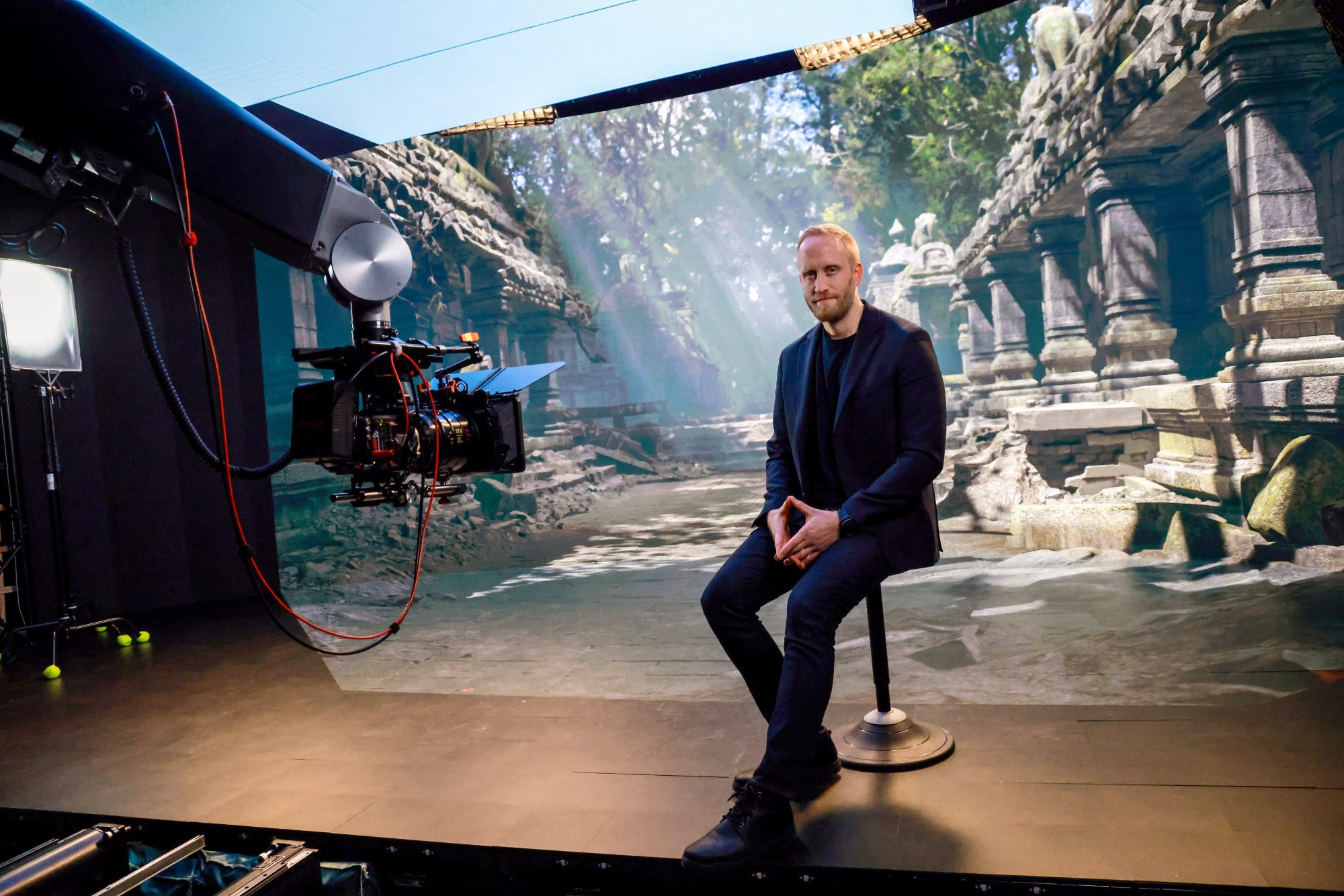
“Training AI models on extensive real-world data sets can save time and resources in creating accurate and immersive countless environments and production workflows,” he said. “AI can also automate tasks like video editing, colour grading and visual effects composting.”
Hollywood filmmakers have already begun using AI to tweak scripts, select cast members, shorten the time taken to choose locations and even predict the financial success of their films.
In Hong Kong, some filmmakers have embraced technology, but others are sceptical that AI can make a difference to the city’s stagnant industry, which has struggled to break from stale formulas and rely on the same group of ageing actors.
Film editor Wong Hoi, 56, who has won multiple awards for his work, said he believed AI could improve film production in many ways.
He recalled editing the blockbuster hit Bodyguards and Assassins, which swept eight Hong Kong Film Awards, including best film and best director, in 2010.
“It was shot in Shanghai, where the production team built a physical set that felt like Hong Kong was transported there,” he said.
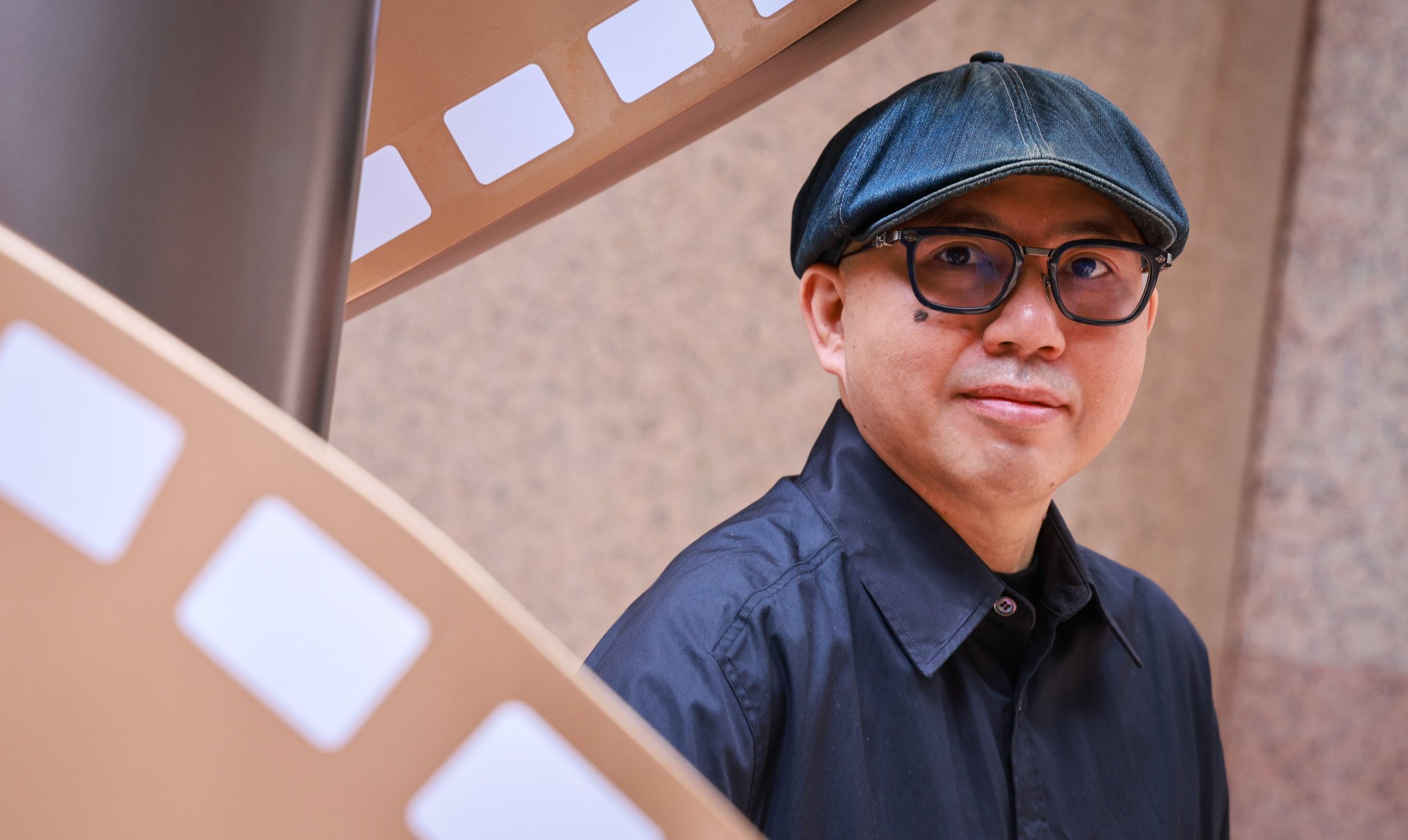
It cost HK$50 million (US$6.4 million) to create the set, resembling Hong Kong Central in the 1900s, on a site as big as 10 football fields.
“The set was really magical. But now if we use AI and virtual sets, we can achieve equally stunning and detailed results without needing extensive construction,” said Wong, who is chairman of the Society of Film Editors Hong Kong.
He estimated that using AI could at least halve the cost and time needed to create film locations.
“Human creativity is the key to it all and we will not be replaced by AI, but people of the industry and all Hongkongers must embrace new things to avoid being left behind in the tide of progress,” he said.
The rising adoption of AI globally has prompted Chinese technology and e-commerce giant Alibaba Group, which owns the Post, to support Hong Kong’s creative sector.
Its entertainment and media arm Alibaba Digital Media and Entertainment Group announced in March that it would invest at least HK$5 billion in Hong Kong’s culture and film industries over the next five years to help reboot the sector.
The company said the investment would go towards producing local broadcast series, films and performances and grooming young talent.
Hong Kong wants to make a big splash in ‘art tech’. But what is it?
Hong Kong wants to make a big splash in ‘art tech’. But what is it?
‘Using AI puts the cart before the horse’
Filmmaker Norman Chan Hok-yan, associate director of Baptist University’s film academy, said AI and technology could not fix the most pressing issues in Hong Kong’s film industry.
“Many big-budget productions often fall into the same genre such as crime thrillers. The cast tends to be just a handful of well-known stars audiences have grown tired of seeing repeatedly,” he said.
Chan said the abundant choice offered by online streaming platforms had also made it harder for Hong Kong’s films to score at the box office.
“People can simply tune in to Netflix to watch any movie from as close as Thailand and Indonesia, to as far as Finland, Denmark and Sweden, with a vast variety of genres,” he said.
Chan, who produced classics such as An Autumn’s Tale and the series of It’s a Mad, Mad, Mad World films in the 1980s, said Hong Kong films did not enjoy global recognition as major production companies focused on co-productions with mainland China targeted mainly on the market there.
“Such multimillion-dollar productions often prioritise established stars, while new actors are left to continue in smaller roles, creating a gap in the talent pool. But even big stars are no longer a guarantee of box office success,” he said.
Veteran filmmaker John Chong Ching, 65, who produced the classic Infernal Affairs trilogy, brushed aside talk of AI, saying Hong Kong’s film industry was more concerned about breaking into the mainland and overseas markets.
“Nobody has the time to be preoccupied with the use of AI. We are more concerned about making breakthroughs with our storytelling, presentations, scriptwriting and how to attract viewers and tap different markets,” he said.
“Without good storytelling and thought-provoking content, it doesn’t matter what kind of AI you use.”
Chong said some sci-fi blockbusters had used a lot of advanced technology but received bad reviews and had not made much profit.
“Many industry players won’t put the horse before the cart. The script comes first, then we’ll see if technology can complement the script and provide value for money. We won’t write a script to cater to a specific technology,” he said.
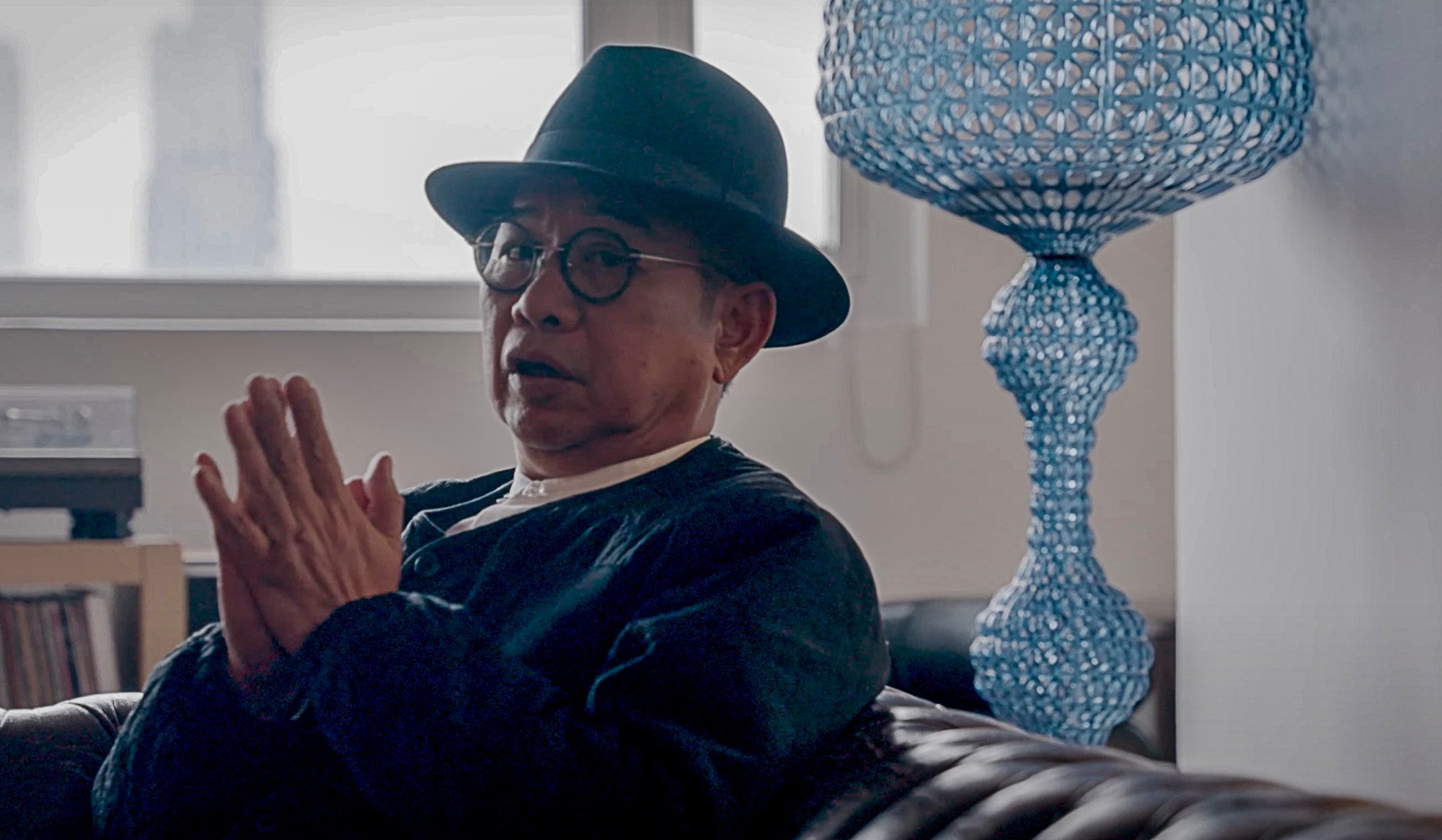
But James Leung Wah-sang, 64, director of production house Mutual Workshop, said AI and virtual production helped him shoot a music video for singer Jeffrey Ngai Tsun-sang’s “My Own World Map” in a single day.
The video featured a variety of scenes including an ancient cathedral, a pirate ship, a snow-covered mountain and a vast grassland, all created in six hours by Votion Studios.
The singer’s record label had given him two weeks to get the job done.
“In a very compressed time frame, the studio was able to produce background scenes that matched my vision. We filmed most of the music video there as well,” Leung said.
Generative AI takes centre stage at twin Hong Kong tech fairs
Generative AI takes centre stage at twin Hong Kong tech fairs
Describing himself as “old school” after more than four decades in the industry, he said using AI was eye-opening.
“It allows actors to blend in seamlessly with virtual imagery. I can monitor the screen in real-time and fine-tune things right away,” Leung said, adding that he spent less time on adjusting lighting and colour quality.
“It halved the production time compared to shooting at real sets.”
That experience convinced him the new technology could reduce the cost of filming in different locations worldwide for films and television shows, without compromising the finished product.
For one thing, he said, it would cut the cost of flying film crew to different places and putting them up in hotels.

‘Fusion of art, creativity and tech’
He said the region, with a combined population of more than 80 million and a growing middle class, represented a significant market for entertainment and media consumption.
Hong Kong, with its established infrastructure, international approach to production quality and global connectivity, had a competitive advantage as an ideal location to attract production projects and cater to the needs of local and international content creators.
“This unique set-up enables storytellers to shoot in any location, whether realistic or fantastical, within the studio’s confines, using real-time virtual environments,” he said. “The fusion of art, creativity and technology creates a captivating space where magic truly happens.”
Hong Kong artists play with AI in Beyond the Singularity exhibition
Hong Kong artists play with AI in Beyond the Singularity exhibition
He said AI models could be trained by using existing films and cinematographic principles, and virtual cameras could be programmed to capture shots that mimicked the style and techniques of renowned cinematographers.
In February, Microsoft-backed OpenAI introduced Sora, a new tool able to create lifelike videos from written text prompts, sparking discussion about its potential impact on the film industry.
But Proeis said it had limitations, including “the substantial amount of computing power required for Sora to become mainstream”.
“Similar tools are likely to serve as aids in enhancing the filmmaking process, not replacing it,” he said.
“While some argue that AI will eventually replace humans, I believe it may struggle to replicate the human creative mind and make nuanced creative decisions.”
Is AI the killer app for smart glasses? This Singapore-based start-up thinks so
Is AI the killer app for smart glasses? This Singapore-based start-up thinks so
A boon or bane for the industry?
With the advances in AI, Baptist University has established five art technology start-ups, with two research projects adopting text-to-prompt technologies.
“MotionGPT” allows users to input text prompts and transform them into a video for BuVatar, an AI-powered digital avatar, to perform programmed actions and behaviour.
The avatar can be of a human or animal, and costumes, background settings, framing and camera angles are all flexible.
“You can simply ask an avatar to walk for five seconds and then squat for five seconds and jump,” said Dr Chen Jie, an assistant professor at the university’s department of computer science.
He said the two projects complemented each other, with MotionGPT specialising in motion generation and BuVatar used for virtual character creation.
“Combining them offers a low-budget production solution for the film industry and those in academia,” he said.
“Take martial arts films as an example. The technology offers filmmakers more options, allowing actors to quickly demonstrate actions to directors through simple commands, or showcasing desired movements to actors,” he said.
“This reduces retake time and enhances filming efficiency, and potential saving costs in hiring martial arts instructors.”
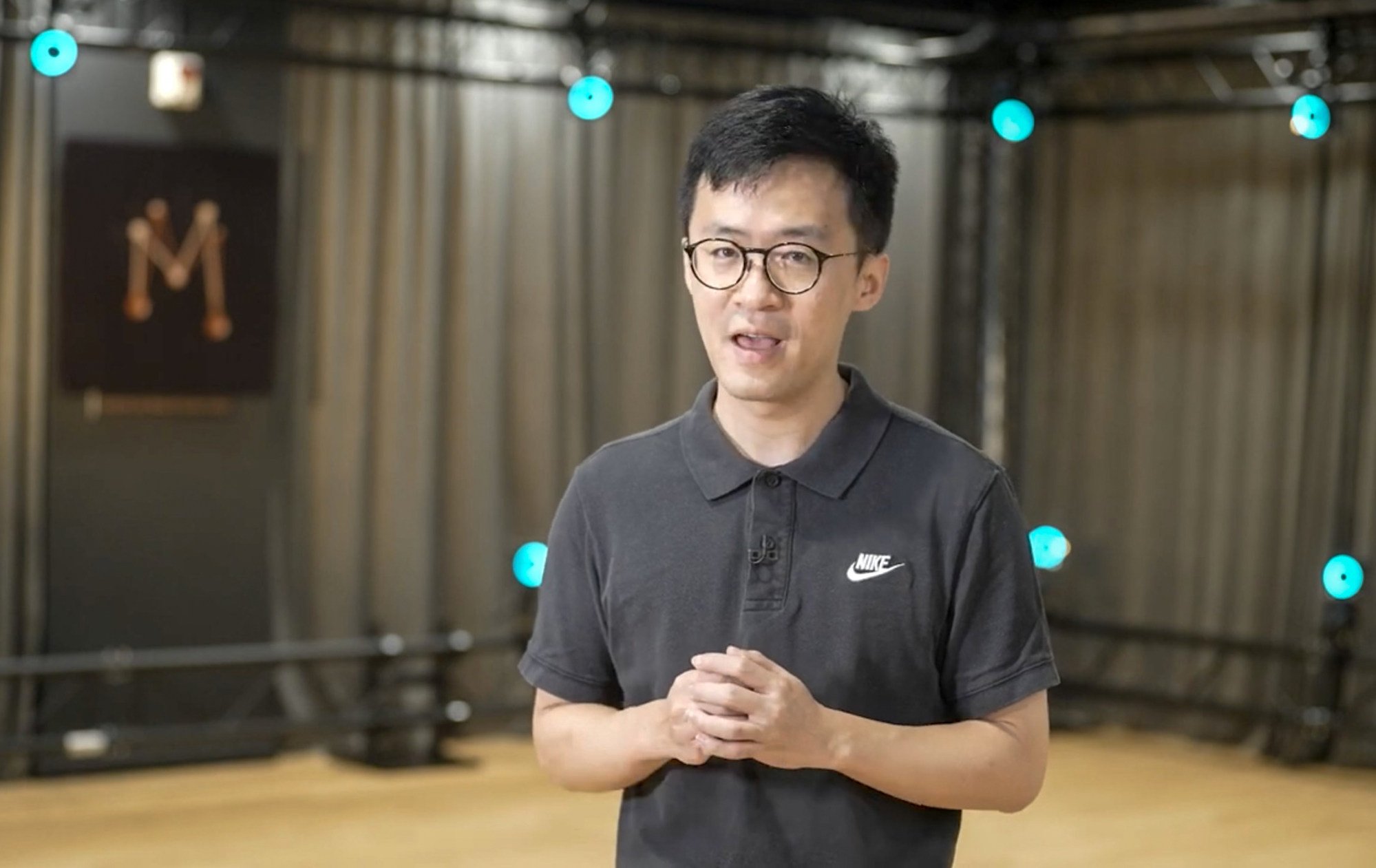
He added the movements captured in the campus studio would become valuable data sets for machine learning to train MotionGPT, potentially helping to preserve martial arts techniques at risk of being lost.
The professor, who also founded the university start-up Lumos Arts and Technology, said he hoped to use art tech and collaborate with industry to equip film students with improved technological skills and creativity.
Veteran producer and actor Tenky Tin Kai-man, 62, former chairman of the Federation of Hong Kong Filmmakers, said the local industry’s use of AI was still in its infancy, and cautioned against over-reliance on technology for filmmaking.
“AI can’t generate a success formula for films,” he said. “It’s difficult to tell the psychology of viewers.
“Sometimes they are drawn to a particular movie just because of a particular actor, particular scenes, lines that strike a chord with them or the sense of reality presented. If they know a movie is full of AI, audiences may be turned off.”
While he agreed that AI could help filmmakers, he saw its role as “purely complementary” and did not think it was the answer to the industry’s problems.
“Movies need originality, creativity and the human touch,” he said.

